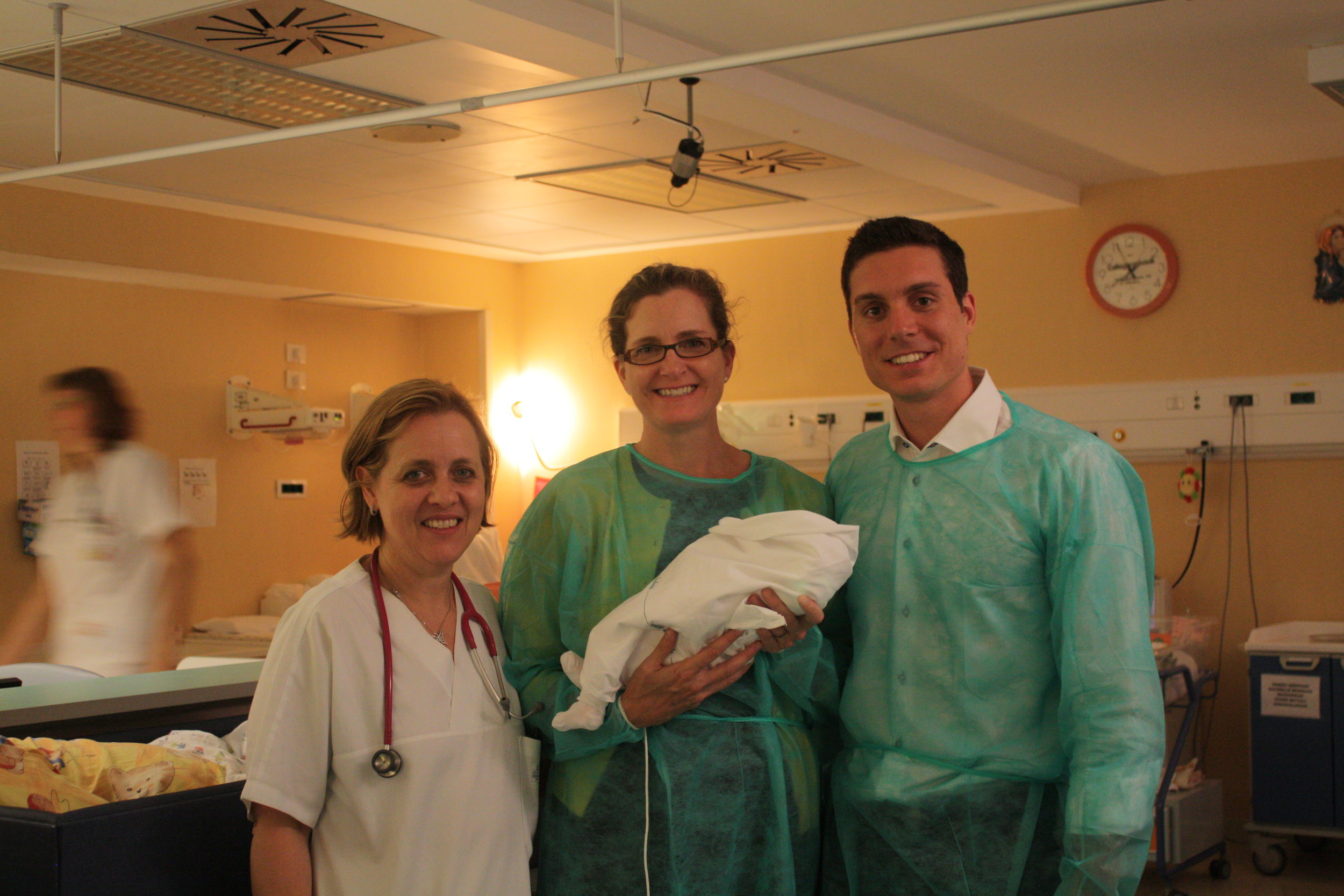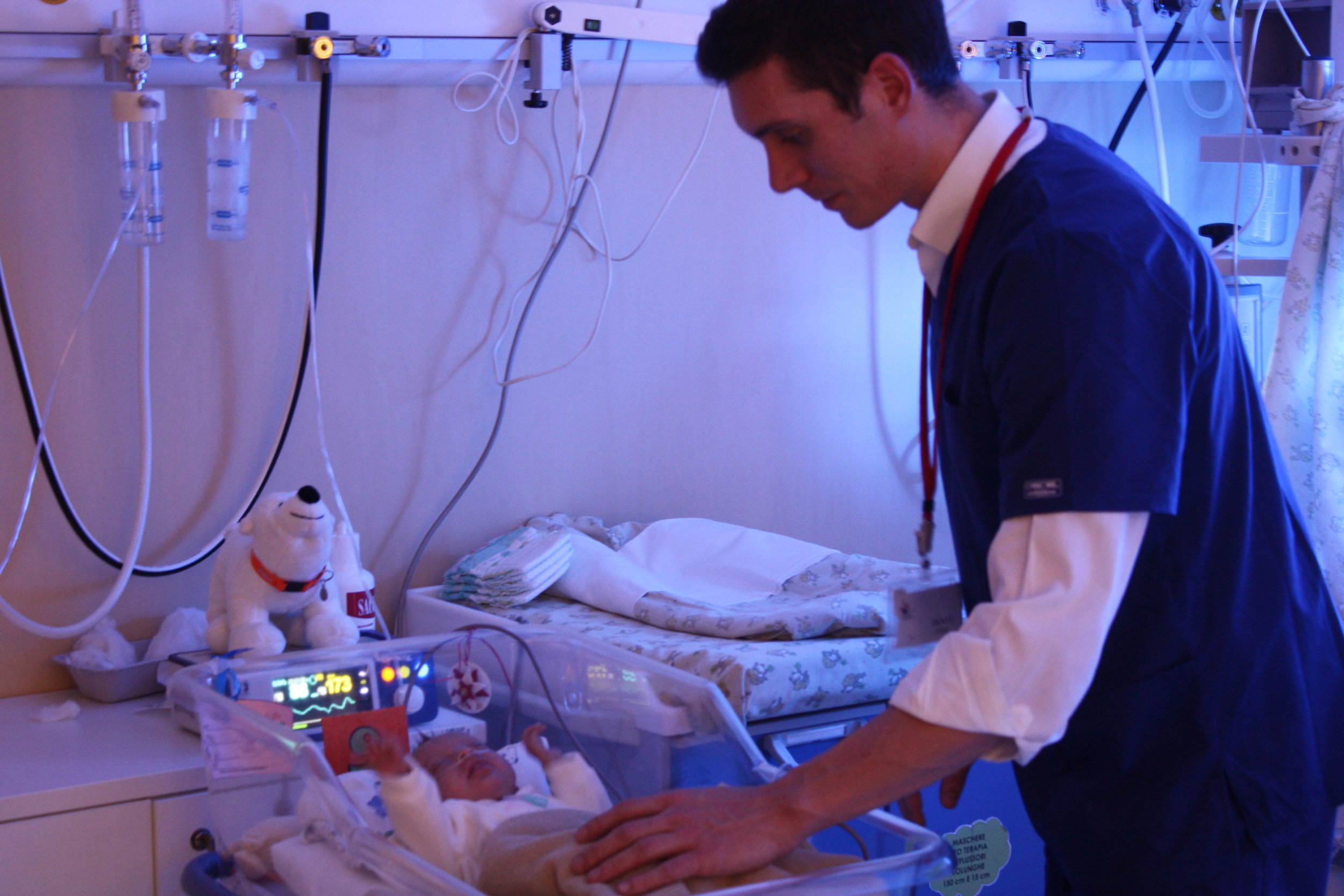
THE GENOTE BLOG
Inspiring, creating and living Health Music
MUSIC, TERM AND PREMATURE BABIES
The beginning of life is often a very stressful experience, even for otherwise healthy babies. Prior to birth, all the infant knows is the warm, safe, and quiet surroundings of being in the womb. The beginning of life brings cold, danger, and noise. All of the noise, particularly the hospital environment, can be detrimental to the newborn receiving the sleep it needs.
Specifically referring to studies conducted in Neonatal Intensive Care Units, we know the importance of sound.
Ås reported by Rich Haridy in New Atlas, on May 29th, 2019, an important study at the University of Geneva, shows that music can help build the brains of premature babies.
At Genote, Health Music is a valuable resource for reducing stress and increasing stability in newborn children. The existing research did not make clear what types of music would be best for this purpose.
Sixteen newborns were exposed to the Genote Sleep Music Protocol for thirty minutes twice per day. Their heart rate, blood oxygenation, pain scale, and behavioral states were measured within a half hour of exposure to the music.
The majority of the newborns showed improvement in their capacity to self-soothe and transition to a more relaxed state. Their sleeping patterns also improved. The positive impact of structured music listening on healthy newborns indicates the need for further study on the impact structured music could have on sick newborns.
Hear some of the new music used at the University of Geneva
See the video from Venice NICU
Music Helps Children During Medical Procedures
Listening to music reduced pain and anxiety, improving medical procedures on children.
Hospitals and dental clinics can terrify children – and for good reason. Pain, discomfort, and anxiety accompany children’s medical experience, but what if their pain could be reduced with music? A study by Dr.Tanja Bekhuis discovered music could make all the difference for children.
Dr. Tanja Bekhuis studied 19 random trials experimenting with music’s effect on children undergoing medical procedures, and her study of all of these trials in context found remarkable results. Listening to music reduced pain and anxiety, improving medical procedures on children in significant ways such as:
- Reducing pain and makes children more manageable and happy
- Decreasing procedure time and length of discomfort
- Reducing need for pain controlling drugs
This study opens up doors for further music exploration. It may be the music was only a distraction, a loud noise to block out strange auditory stimuli, or entertainment to pass the time. But research has verified that music may be more than that. In fact, music may even be fine tuned in order to help children cope with specific symptoms that come with pain and anxiety.
Music’s potential to make a profound impact on the medical community requires strict attention. That’s why music and medicine companies like Genote™ thoroughly study practical musical application to help individuals around the world better heal, sleep, and improve daily life.
We thank the wonderful scientists who conducted all the extensive studies to give us these valuable insights. These findings lay the perfect foundation upon which to build a new generation of music and medicine.
Music can reduce pain – music can do much more.
Learn more about the benefits of music at www.genotelab.com
The Importance of Early Auditory Experiences in Premature Infants - A Mom Testimony
My twins are almost 2 1/2 years old and have been listening to their Genote sound machine since they were infants. They initially spent 31 (my daughter) and 35 days (my son) in the NICU.
“A premature baby’s main challenges are represented by the immaturity of the infant that is thrown from the optimal environment of the mother uterus into a very uncomfortable place with sounds, noises, lights and painful procedures that prevent her recuperating and developing fundamental competencies for grow and health. The baby knows how to communicate and tell us many things, but she needs somebody to listen to her and look at her. (1)”
Preterm birth, is the birth of a baby at fewer than 37 weeks gestational age. It is a common condition that affected about 1 out of 10 babies (9.6%) in the US during 2016 (2) and is the most common cause of death among infants worldwide.
Because of the gravity of this situation and the possibilities that exposure to sound offers to preterm babies and their parents, Genote invested many years in research and clinical experiences to develop a method based on structured listening protocols designed to help the baby’s neurological development, improve sleep, pain management, and recovery. Optimized for the clinical setting as well as the home, the Genote system can be implemented by families or medical personnel during and after hospitalization.
Preterm babies that spend their first weeks or months in the neonatal intensive care unit (NICU) are deprived of the entire range of sounds that would come from their mothers. These absent sounds are mainly sounds they would be hearing while in utero; low-frequency bands of the mother’s voice and rhythmic bits from the mother’s heartbeat.
Countless studies reviewed by the Genote scientific team show the importance to protect the baby from a wide array of noises (including harmful white noise) while stimulating the auditory system with structured sounds and melodies that allow for proper stimulation, development of the auditory brain, speech and language acquisition. (3-5)
In our many stories of supporting and informing families struggling with this problem, we met many great mothers and strong babies that teaches us not only about the meaning of life but also of their great resiliency and the importance of the human interaction for their growth and development. Lately, we met Diana from Los Angeles, who decided to try Genote on her two premature babies. This is her testimony.
“My twins are almost 2 1/2 years old and have been listening to their Genote sound machine since they were infants. They initially spent 31 (my daughter) and 35 days (my son) in the NICU. The music has been so soothing to them and I believe it helps them understand melody that much more in their music class and in our life. I would highly recommend it to all newborns and napping little ones over white noise.
”
The Great Balancing Power of Music
When individuals feel down, they naturally turn to music for consolation. This published study may change the way you use music to regulate your mood.
When individuals feel down, they naturally turn to music for consolation. They attempt to drive away their negative feelings with songs expressing their personal mood and situation. But sad music doesn’t necessarily transform a sad person; rather, it can reinforce those emotions and skew perspective through emotional connections. Seeking to understand how music influences emotions, Frontiers in Human Neuroscience published a study that may change the way you use music to regulate your mood.
The medial prefrontal cortex (mPFC) is the portion of the brain associated with regulating emotions. Scientists at Aalto University monitored brain activity in the mPFC to determine the effects of different kinds of music on males and females. The study found when women listened to music as a diversion or distraction from negative feelings there was increased emotional regulation. Conversely, when men used music to reinforce negative emotions, their emotional regulation decreased, suggesting that sad music can help propel a person into a downward emotional spiral, or at least be ineffective and brightening someone’s mood.
In a nutshell, the study suggests that people are using music every day to combat or compliment their emotions, but improper use of music may only amplify their emotional concerns.
Aalto University’s study reinforces the notion that music has a profound influence on individuals’ lives. Music can be extremely beneficial when used in the correct way, but incorrect use can have adverse effects. Understanding music’s potential is just the beginning. That is the community of music and medicine is diving deeper into previously neglected areas of music research to discover how best to utilize music’s valuable capabilities.
With deeper knowledge and understanding of music’s influence on our lives, we can regulate our emotions with cognitive control. To learn more about extensive Genote™ Health Music discoveries, visit http://www.genotelab.com/.
Thinking Aloud with Classical89
When Classical89 asked if they could feature us in their show, Thinking Aloud, we were excited and a little hesitant because, frankly, being interviewed on the radio can be really scary.
Fortunately, between the three of us, we could help each other out. We think the program turned out pretty well. Give it a listen!
When Classical89 asked if they could feature us in their show, Thinking Aloud, we were excited and a little hesitant because, frankly, being interviewed on the radio can be really scary.
Fortunately, between the three of us, we could help each other out. We think the program turned out pretty well. Give it a listen.
We were particularly delighted by our experience with Marcus Smith, the host of Thinking Aloud, because he grasped on to what we were trying to communicate very quickly. We could tell he lived for music, and was a strong believer in the power it might have on our lives.
When we talk to people about the Genote™ method, including our research studies, there is always a distinguishing moment recognizable on their faces when things start to click. It is one of the best parts of spreading the news: watching people’s cautious optimism about music’s effect on the mind and body be solidified into something a little more concrete. Usually when a person realizes the gravity of what we are saying, the eyes expand ever so slightly and the mouth opens just a little wider. For us, seeing the Genote™ moment happen to others is so resonant because it reminds us of how the project started in the first place.
Most of all, we were grateful to Marcus because he understood our big picture message: Genote™ music is a scientific, research-validated, quantified approach to music and medicine.
After the interview, we stayed for quite some time chatting off the air, talking about important music moments in each of our lives. He even showed us the impressive Classical89 library, an experience we won’t soon forget.
If you haven’t had a chance to check out Thinking Aloud, go over to their website and give the show a listen. It is definitely worth the time.
To learn more about our science, method and music, visit http://www.genotelab.com



















